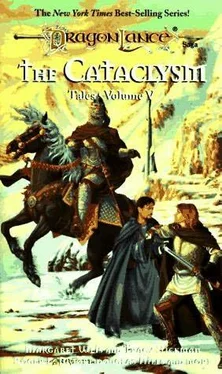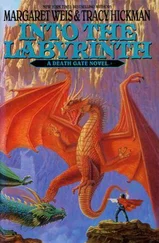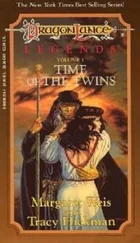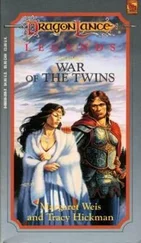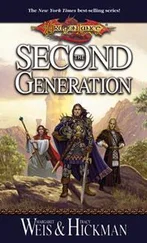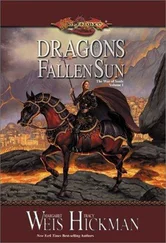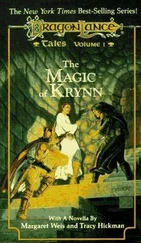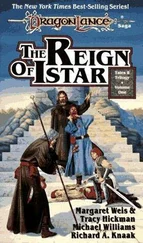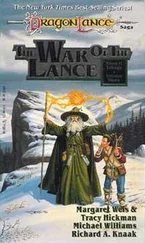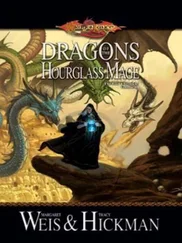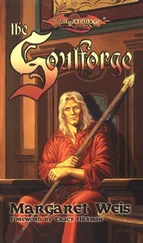Margaret Weis - The cataclysm
Здесь есть возможность читать онлайн «Margaret Weis - The cataclysm» весь текст электронной книги совершенно бесплатно (целиком полную версию без сокращений). В некоторых случаях можно слушать аудио, скачать через торрент в формате fb2 и присутствует краткое содержание. Жанр: Фэнтези, на английском языке. Описание произведения, (предисловие) а так же отзывы посетителей доступны на портале библиотеки ЛибКат.
- Название:The cataclysm
- Автор:
- Жанр:
- Год:неизвестен
- ISBN:нет данных
- Рейтинг книги:4 / 5. Голосов: 1
-
Избранное:Добавить в избранное
- Отзывы:
-
Ваша оценка:
- 80
- 1
- 2
- 3
- 4
- 5
The cataclysm: краткое содержание, описание и аннотация
Предлагаем к чтению аннотацию, описание, краткое содержание или предисловие (зависит от того, что написал сам автор книги «The cataclysm»). Если вы не нашли необходимую информацию о книге — напишите в комментариях, мы постараемся отыскать её.
The cataclysm — читать онлайн бесплатно полную книгу (весь текст) целиком
Ниже представлен текст книги, разбитый по страницам. Система сохранения места последней прочитанной страницы, позволяет с удобством читать онлайн бесплатно книгу «The cataclysm», без необходимости каждый раз заново искать на чём Вы остановились. Поставьте закладку, и сможете в любой момент перейти на страницу, на которой закончили чтение.
Интервал:
Закладка:
There were other adventures that led me back to the peninsula — a wide arc of years and travels across the continent, Finn's men at first only hours behind me, then less constant, less menacing the farther south I traveled. I sent the dogs back to Mother soon and traveled alone, sometimes working for a while at jobs where nobody knew me or thought they knew me, where nobody cared that I never removed my hood.
It was a year, six seasons perhaps, before I realized exactly what it was about the song I was searching for.
It has long been practice that when a bard travels and sings, his songs are attended, remembered, and copied by those in the regions nearby. If a song is a new one, it carries to still farther regions by word of mouth, from bard to bard, from orator to folksinger to storyteller to bard again.
It is a tangled process, and the words change sometimes in the telling, no matter how we try to rightly remember. The old lines from Arion's song I heard in Solamnia as THE PRAYER OF MATHERI MERCIFUL GRAMMAR OF THOUGHT
I had heard in the small town of Solace as THE PRAYERS OF MATHERI MERCY, GRANDMOTHER OF THOUGHT
and the southern lines made me laugh, distorted like gossip in their passage across the straits.
For I had the book with me, and within it (he truth unchangeable. As I traveled, I knew I would come to a place when I would hear those scratched and worried lines of my father's — the lines about Pyrrhus Alecto, about Lightbringer and history and glory — but I would hear them in a different version.
And I would know at last what Pyrrhus Orestes had altered.
Across the Straits of Schallsea I once stowed away on a ferry. The enraged ferryman discovered me under a pile of badger hides, and he threatened to throw me overboard for evading his fee. He relented when he pushed back my hood and saw the scars from the burning.
"Firebringer," he snarled. "Only my fear of Branchala, of the curse upon bard-slayers, stays my hand from your murder." I cherished his greeting. It was the first of many such conversations.
Over the grain fields of Abanasinia I wandered, in a journey from summer to summer and threat to threat. Three times I heard "Song of the Rending" — once from a minstrel in Solace, again in the city of Haven from a seedy, unraveled bard who had forgotten entire passages about the collapse of Istar, whereby his singing lost its sense, and finally from a blind juggler wandering the depths of the plains, whose version was wild and comical, a better story by far than Arion's.
The minstrel and the juggler repeated Father's altered lines word for word. But the juggler recited them with a curious look, as though he was remembering words contrary to those he was speaking. Although I asked him and asked him again about it, he would tell me nothing. Faced with his silence, I began to believe I had imagined his discomfort, that it was only my hope and dreaming that had expected to find the missing lines.
And so, back across the straits I sailed, in the summer of my sixteenth year, and again the ferryman called me Fire-bringer, cursing me and spitting at me as he took my money.
On Solamnic shores once more, I started for home, but discovered that no village would shelter me on the journey. "Firebringer," they called me, and "Orestes the Torch," meeting me on the outskirts of the hamlets with torches of their own, with stones and rakes and long peninsular knives.
Some even pursued me, shouting that the fires would die with the one who brought them. Like the ferryman, like Finn, they thought I was my father.
To the north lay the great Solamnic castles — Vingaard and Dargaard, Brightblade and Thelgaard and DiCaela. Each would take me in of a night for the sake of my grandfather. These families would nurse me on occasion, for my scars burned with growing intensity as the seasons turned and the fires to the west raged and the years passed by me. Sometimes the knights let me stay for a week, perhaps two, but the peasants would clamor, would talk of traitors and firebrands, and I would be asked to leave, would be escorted from Solamnic holdings by a handful of armed cavalry.
The knights would apologize there at the borders, and tell me that their hearts were heavy for me… that the welfare of the order and the people took precedence… that, had there been another way, they would have been glad to…
In all those high places, I asked after Arion's song. Solamnia was, after all, the bard's sanctuary, the harp's haven. All of the schooled poets had retreated to these courts, and all knew the works of Arion of Coastlund.
I showed around the scratched and amended passage near the poem's end. All the bards remembered it, and remembered no other version. As I sat alone in the vaulted hall of Vingaard Keep, my thickened hands strumming Father's harp in the vast and echoing silence, it almost seemed to me that the walls shuddered with my clumsy music, the one string still and always missing.
In my seventeenth year, the peninsula had burned clear up to Finn's own holdings.
Out of the stronghold of his lair in the seaside caverns at Endaf, from which his horsemen could harry the trade routes north from Abanasinia and his notorious ships, the Nuitari and the Viper , could find safe harbor, Finn terrorized the cape and covered the shore with the husks of schooners and brigantines, off course in the smoke from the mainland.
It was rumored by some that an ancient evil had returned, in those brief years before the War of the Lance. Finn was one of those who harbored them, the populace whispered. For in the depths of his seaside cavern lay an intricate web of still larger caverns, tunnel devolving on tunnel, the darkness slick and echoing. This was the legendary Finn's Ear, where it was supposed that all sounds muttered in shelter of stone eventually and eternally circled and spoke. At the heart of Finn's labyrinth was said to lay a monster, his black scales glittering with cold malice and devouring acid.
They said that the beast and the bandit had struck an uneasy truce: Finn soothed the monster with the music of well paid but exhausted bards, and, lulled by continual song, the great creature received in turn the company of the bandit king's uncooperative prisoners. And as to the fate of those poor wretches, even the rumormongers were silent.
In the rough border country between Lemish and Southlund, cooling myself in the high foothills of the Garnet Mountains, I pondered the looming necessity of actually going to Finn's Ear, where the bards were singing and the caverns echoing. It was the only place I had not searched for the song.
Hooded as always to hide my livid scars, I crossed that border and stalked through the burning peninsula, keeping the towers of Caergoth to the north as I traveled toward the little villages in the west. My route took me within Finn's own sight, had he cared to leave his rocky throne and look west from the beetling cliffs.
For days I wandered through hot country and distant rising smoke. I would stand outside the village pubs, hooded and shrouded like a highwayman or a self-important mage, and through open windows I heard the nervous talk, the despair of farmer and villager alike.
Spontaneous fires arose in the dry grain fields, leaving the countryside a wasteland of ash and cinder. In droves the farmers were leaving, no longer able to fight the flames. All this disaster, they claimed, had enraged Finn to the point where, in the search for remedy, he had offered an extravagant bounty to any bard or enchanter who could extinguish the fires with song or incantation.
Hard words about a curse drifted through one of the windows. I heard the name of my father. It lightened my steps somehow, as I passed through the deserted village of Ebrill in the early morning, then over the ruins of Llun and Mercher, moving ever westward, believing now that my quest would at last be done. Endaf was the last place Finn would look for a far-flung quarry, and my father's name rode on the smoky air.
Читать дальшеИнтервал:
Закладка:
Похожие книги на «The cataclysm»
Представляем Вашему вниманию похожие книги на «The cataclysm» списком для выбора. Мы отобрали схожую по названию и смыслу литературу в надежде предоставить читателям больше вариантов отыскать новые, интересные, ещё непрочитанные произведения.
Обсуждение, отзывы о книге «The cataclysm» и просто собственные мнения читателей. Оставьте ваши комментарии, напишите, что Вы думаете о произведении, его смысле или главных героях. Укажите что конкретно понравилось, а что нет, и почему Вы так считаете.
